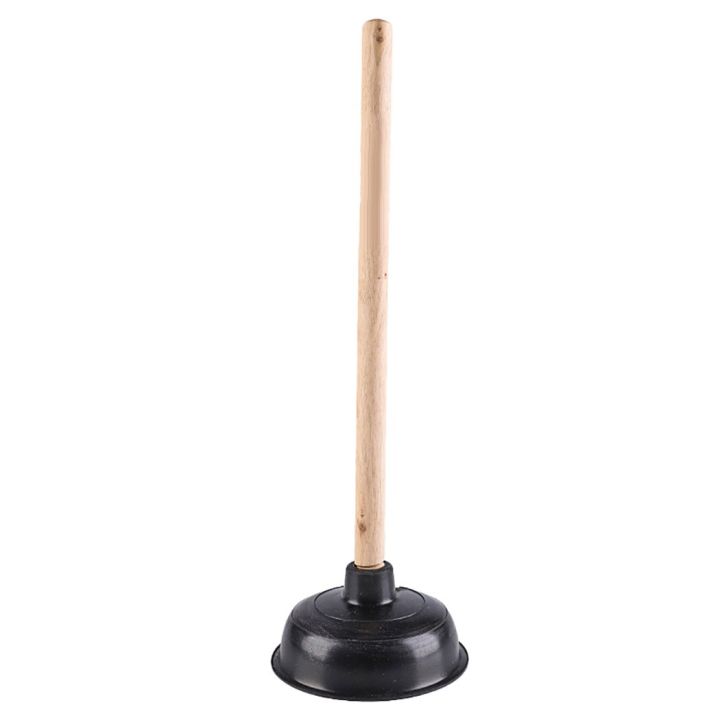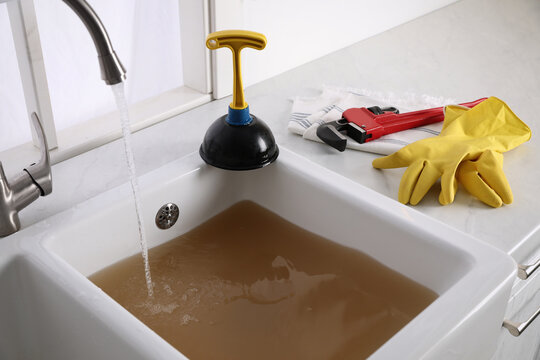The content below in relation to How To Use Your Toilet Plunger Correctly in 5 Easy Steps is really compelling. Have a go and make your own personal results.

Intro
Appropriate upkeep of family drains is crucial for stopping obstructions and guaranteeing smooth water circulation. Among the secret devices in every home owner's toolkit is the plunger, along with various drainpipe cleaners designed to take on persistent blockages successfully. This write-up discovers just how to use plungers and drain cleaners properly to keep your drains moving easily.
Area 1: Comprehending Bettors
Kinds of Plungers
There are several kinds of plungers readily available, each created for different sorts of drains and obstructs. The most usual types consist of mug bettors, flange bettors, and accordion bettors.
Exactly How Plungers Work
Bettors service the principle of developing pressure and suction to dislodge obstructions. When correctly applied over a drainpipe, they create a vacuum cleaner that can take out particles or separate blockages.
Choosing the Right Plunger
Selecting the appropriate plunger depends on the sort of drainpipe and the nature of the obstruction. Cup plungers are ideal for sinks and tubs, while flange plungers are better suited for bathrooms due to their layout.
Usual Errors with Bettors
Preventing these errors makes sure reliable plunging: incorrect seal around the drain, inadequate force, and not clearing surrounding particles.
Area 2: Utilizing Plungers Efficiently
Preparation
Before plunging, ensure the plunger covers the drainpipe completely and forms a tight seal. Clear any visible particles around the drainpipe opening.
Method
Beginning with mild plunging activities to develop suction. Boost stress slowly, utilizing a constant rhythm. Repeat as necessary up until the drain clears.
Repairing Tips
If diving does not function, attempt adjusting the seal, applying petroleum jelly for a better seal, or using a different sort of bettor.
Area 3: Comprehending Drainpipe Cleaning Company
Types of Drainpipe Cleansers
Drain cleansers can be chemical or chemical. Chemical cleansers make use of strong chemicals to dissolve obstructions, while enzymatic cleansers use all-natural enzymes to break down raw material.
Exactly How Drainpipe Cleaners Work
Chemical cleansers respond with obstructions to liquify them, while chemical cleaners break down natural products like hair and oil without damaging pipes.
Security Considerations
Always put on handwear covers and eye protection when utilizing chemical drainpipe cleansers. Make sure ample air flow and adhere to supplier directions thoroughly.
Eco-Friendly Alternatives
Consider utilizing vinegar and cooking soft drink or enzyme-based cleaners for eco-friendly choices that are much safer for pipes and the setting.
Section 4: Utilizing Drain Cleansers Efficiently
Application Methods
Pour chemical cleansers straight right into the drain opening. Enable them to work for the advised time prior to flushing with warm water. Enzymatic cleaners must rest overnight.
Safety measures
Stay clear of blending different kinds of cleansers, as this can generate hazardous fumes. Never ever use chemical cleaners in conjunction with a bettor, as splashing can take place.
Dealing With Stubborn Obstructions
For persistent clogs, take into consideration utilizing a pipes serpent or calling a specialist plumbing technician to avoid damages to pipes.
Verdict
To conclude, recognizing exactly how to use plungers and drain cleaners properly is vital for keeping healthy and balanced pipes systems. By choosing the right tools and strategies, homeowners can deal with small blockages and protect against significant plumbing issues down the line.
6 Common Drain Cleaning Mistakes and How to Avoid Them
Chemical Meltdown
When you have a blocked drain, one of the first solutions you may think of is to get chemicals to clear it. There are a lot of drain cleaning chemicals on the market and many make huge promises.
However, they often don’t live up to their promises. Depending on the kind of blockage you have, they may only worsen the problem and deepen your frustration.
If you have solids blocking a drain, it’s unlikely that chemicals will be able to clean it effectively. If the chemical is harsh but still cannot dissolve the blockage, then you are stuck with the blockage plus the chemicals inside the drain. Drain cleaning chemicals are toxic and can end up doing more harm than good.
Incorrect Plunging
One of the first drain cleaning tools you will probably reach for when you have a blockage is a plunger. There are several different plungers out there and they’re all made for separate kinds of drains. To get the job done, you need to choose the right plunger for the job.
Sink plungers will have a bell-shaped bottom. Toilet plungers, on the other hand, will have a flat bottom. However, even if you do have the right plunger, you need to make sure that you’re using it correctly.
Place it over the drain and completely seal it off. Push the plunger slowly and precisely, up and down. If you plunge too fast, you may push some of the matter that’s blocking the drain too far down.
Take your time when plunging. It’s understandable that you want to unblock the drain quickly, but plunging too fast can make matters worse.
Poking Into the Drain
After you’ve tried chemicals and even a plunger without much result, you may decide to get creative. But doing this while trying to unblock a drain can go badly.
For example, many people will try to dislodge the blockage by unbending a hanger and sticking it down the drain, but poking at the blockage is never a good idea.
Also, don’t try to use a stick to poke down the drain. It may break, leaving you with bigger problems. More often than not, once a plunger has failed to unblock the drain, poking something down may shove the matter causing the blockage to go further down the drain.
Sticking things down the drain can also put dents and holes into your drain pipe, which could leave you with a costly plumbing bill.
Garden Hosing
When you have a blocked drain outside, you may be tempted to grab your hose and start applying some pressure to try to unblock the drain.
Hydro jetting a blocked drain should be done with equipment that is designed for this purpose.
A garden hose is not the ideal equipment for trying to unblock a drain. The pressure from it will probably not be heavy enough to unblock the drain. This is especially true if the drain is outside and has been blocked by tree roots or even small animals.
Attempting to DIY hydro-jetting can cause flooding which will only make matters worse. It may also cause damage to the pipes.
Incorrect Use of a Drain Snake
A mechanical snake is a great way to unclog a drain. However, it should not be abused.
Do not force the drain snake around pipe corners that are hard to navigate. Using a drain snake too frequently and incorrectly can damage pipes leading to expensive repairs.
Avoiding the Plumber
DIY projects are to be celebrated. We understand that some homeowners would prefer to do repairs themselves to save some money . But there are certain instances where it’s just more cost-effective to call in a professional to deal with the problem.
If you’ve tried everything to unclog your drain and nothing is working, then there’s no need to go any further. It’s time to call a plumber!
https://trusteyman.com/blog/6-common-drain-cleaning-mistakes/

I stumbled upon that blog posting on How To Use Your Toilet Plunger Correctly in 5 Easy Steps when scouting around the internet. Are you aware of another person who is fascinated by the subject? Feel free to promote it. Kudos for being here. Please come visit our site back soon.
Schedule And Pricing
Comments on “Tips to Master Plungers and Drain Cleaners: Specialist Advice”